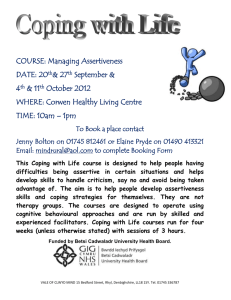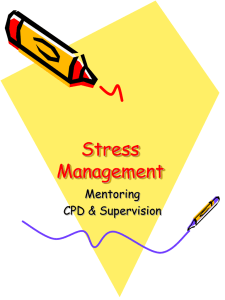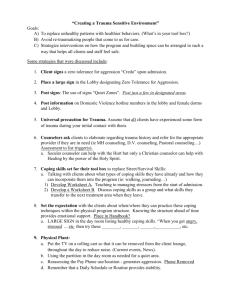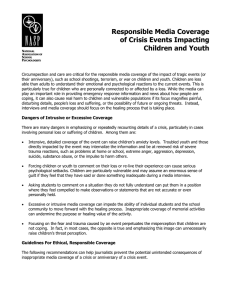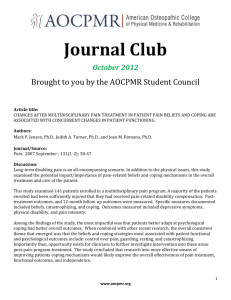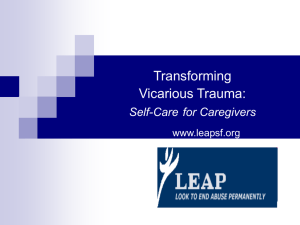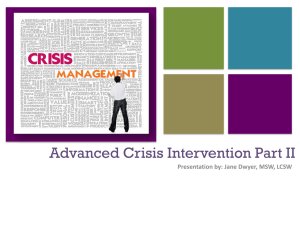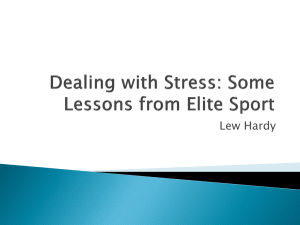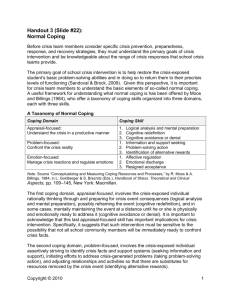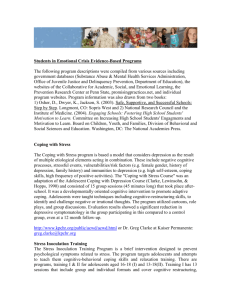RELIGION - trauma or therapy
advertisement
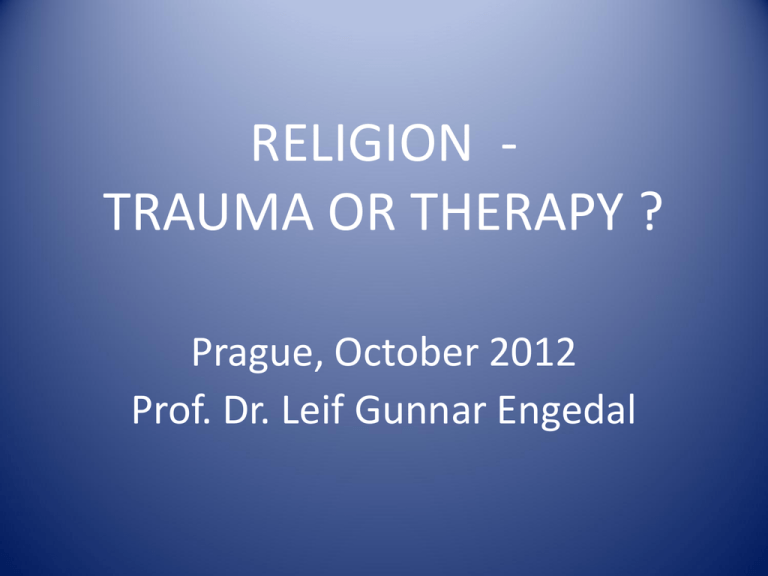
RELIGION TRAUMA OR THERAPY ? Prague, October 2012 Prof. Dr. Leif Gunnar Engedal The poor……. The old and sick…. The marginalized…. Terror ……. Oppression ….. A blue-eyed Norwegian…. Religion • Our context: Western Christian Religion • «Search for significance in ways related to the Sacred»(Pargament) • Search for deep existential meaning, belonging and commitment in relation to God as understood in Christian faith Dimensions of religious commitment • The integration of: • • • • • • Ideological dimension: religious belief Ritualistic dimension: religious practice Experiential dimension: religious feeling Intellectual dimension: religious knowledge Consequential dimension: religious lifestyle ( Glock & Stark ) Religion - Trauma - Therapy • Trauma: • Religious communities, experiences and practices that wound people’s lives and represent a threat to the quality of personal and communal life • Therapy: • Religious communities, experiences and practices that empower people to live a life according to God’s will and thus contribute to healing and health in the life of persons and communities Religion and power Prophetic criticism Jesus and the religious elite Prominent and powerful Marginalized and powerless ? Transition and change • A secular Age - Ch. Taylor • Secularization or «the return of religion» • Religious transformations: from ‘religion’ to ‘spirituality’ ? • Religion and the secular elites Religion in contemporary Europe – a possible portrait • Believing without belonging • Vicarious religion • From obligation to consumption • From external authority to subjective authenticity Possible positions • S. Freud and the freudian legacy: religion as neurotic defense againt trauma • G.Allport and the humanistic legacy: religion as «extrinsic» or «intrinsic» or «quest» • Relevant positions today: *Object-relations-theory ( A.M.Rizzuto et.al. ) *Religious coping theory ( K.Pargament et.al.) *Attachment theory (L.A. Kirkpatric et.al. ) Dynamic inner images of God • When «God» becomes a enemy of life : • «Der Buch-halter Gott» • «Der strafende Richter-Gott» • «Der überfordernde Leistungs-Gott» • «Der dämonische «Todes»-Gott • K. Frielingsdorf «Religion-as-trauma» vs. «religion-as-therapy» • Findings in relation to mental health : • Religion have different impacts on health and quality of life – due to different ‘types’ of religion ( cf. Intrinsic/extrinsic/quest ) • «Intrinsic religiosity» and serious religious commitment are positively associated with indicators of psychological well-being – and with less depression, suicidal thoughts, drug abuse etc «Religion-as-trauma» vs. «religion-as-therapy • Findings in relation to physical health: • People who attend church frequently and view religion as important are more likely to have lower diastolic blood pressure • Regular religious practice tends to be associated with lower coronary heart disease and lower mortality rated • Religious belief tends to be associated with more positive outlook in coping with disease Religious coping • Different people develop different «coping styles»: «deferring» – «self-directed»»collaborative» • When religious practice develop collaborative coping styles, the ability to cope with crisis is strenghened • Collaborative religious coping and internalized and integrated religious beliefs tends to have positive effects on both mental and physical health, eo ipso: quality of life Summing up • Comprehensive empirical research points in a certain direction: «religion-as-therapy» is not a pious illusion, but rather a well etablished scientific finding • In sum: (a) a secure relationship to God; (b)a firm belief in a greater meaning in life; (c)an internalized set of ethical values; (d)a sense of spiritual connectedness and social fellowship with others have positive implications for personal and communal well-being Where do we go from here? • The fundamental importance of the Core Christian Practices • Luther: Oratio – Meditatio – Tentatio ( H. Nouwen ) • A «sacred companion»: you never walk alone • Homo Viator – to be on the move : • (a)towards your innermost self (b)towards your neighbour (c ) towards God • ( H. Nouwen ) The way to follow
